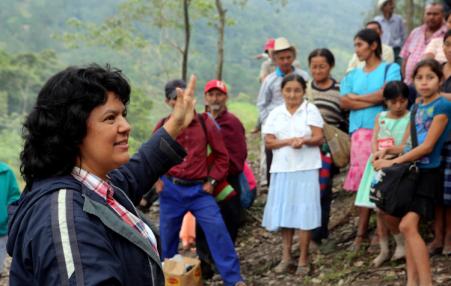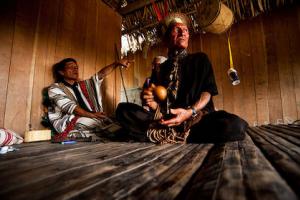Global Left Midweek - February 6, 2019
Portside
 We often debate the pros and cons of welcoming immigrants here. We seldom consider the U.S. impact on the countries they leave. Ultimately, reducing the flow of refugees requires a just foreign policy, one that values people over profits. You can be sure: As long as rights are trampled, voices are silenced, and lives are cut short — there will be forced migration. Even at great risk. Even without parents. Even with a wall.
We often debate the pros and cons of welcoming immigrants here. We seldom consider the U.S. impact on the countries they leave. Ultimately, reducing the flow of refugees requires a just foreign policy, one that values people over profits. You can be sure: As long as rights are trampled, voices are silenced, and lives are cut short — there will be forced migration. Even at great risk. Even without parents. Even with a wall.
 According to a new study by a group of academic institutions and environmental non-governmental organizations, leaving forests in communal hands cuts carbon emissions, helps local communities and offers long-term economic benefits. The November 1st report says the expansion of tribal land rights is the most cost-effective way to protect forests and sequester carbon and urges national governments to ensure indigenous communities a central role in climate policies.
According to a new study by a group of academic institutions and environmental non-governmental organizations, leaving forests in communal hands cuts carbon emissions, helps local communities and offers long-term economic benefits. The November 1st report says the expansion of tribal land rights is the most cost-effective way to protect forests and sequester carbon and urges national governments to ensure indigenous communities a central role in climate policies.
 For Palestinians, Honduras and Guatemala might seem too distant, too irrelevant for our struggle. And while there are some apparent stark differences in our lived realities and in the faces of our oppressors, there are commonalities as well. In Palestine as well as in many parts of Central and Latin America, the oppression is directly sponsored by US military and financial aid. And in all these places our collective survival rests upon defending and preserving our land.
For Palestinians, Honduras and Guatemala might seem too distant, too irrelevant for our struggle. And while there are some apparent stark differences in our lived realities and in the faces of our oppressors, there are commonalities as well. In Palestine as well as in many parts of Central and Latin America, the oppression is directly sponsored by US military and financial aid. And in all these places our collective survival rests upon defending and preserving our land.
Spread the word